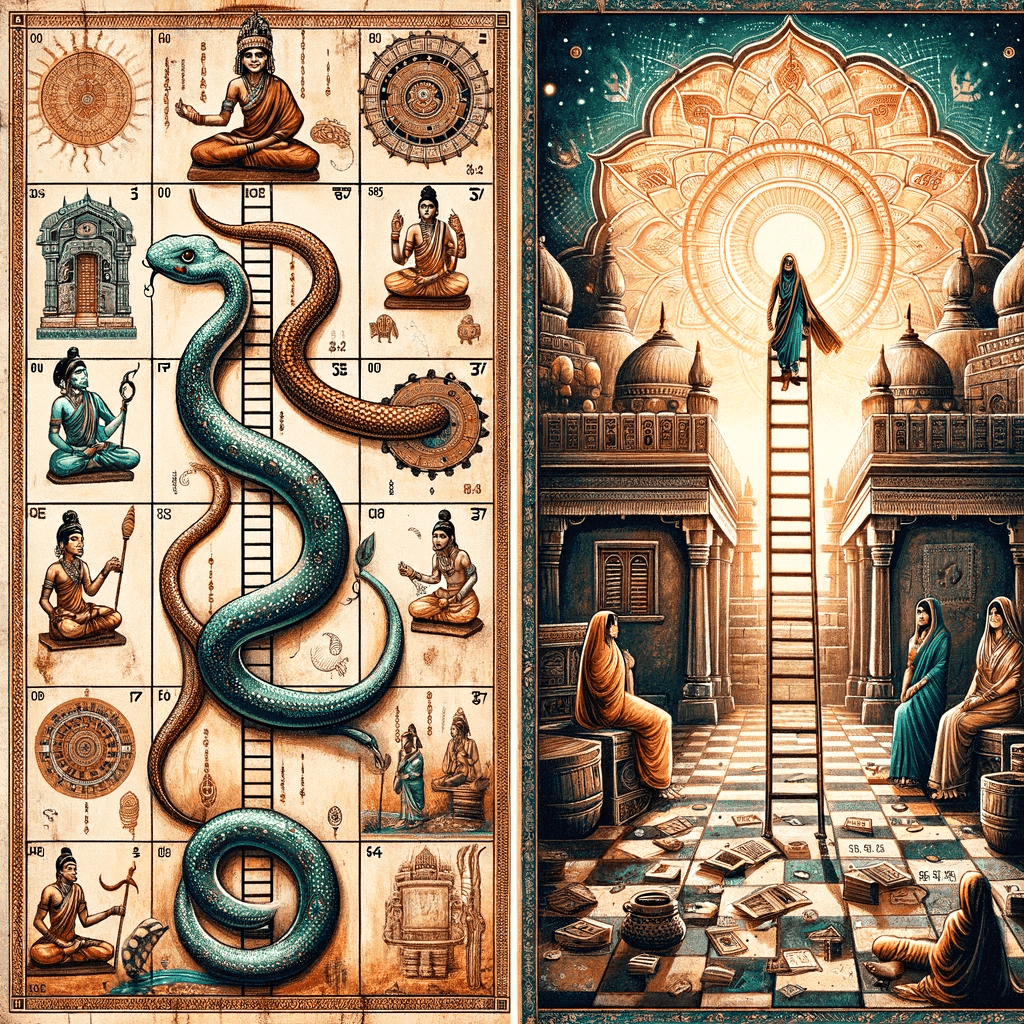The Game of Snakes and Ladders: From Moksha Patam to Modern Play
The game of Snakes and Ladders, known and loved around the world, traces its origins back to an ancient Indian game called Moksha Patam. More than mere entertainment, the original game was deeply imbued with moral and philosophical lessons, intended to teach the virtues of good deeds and the vices of wrongdoings, with the ultimate goal of attaining liberation (Moksha).
Information and Other Details

Information on the Discovery
Moksha Patam was discovered as part of the rich tapestry of ancient Indian games. Unlike the modern version, which is primarily focused on entertainment, the original game was a tool for moral education. It was used to teach children about the effects of good and evil, with snakes representing vices and ladders symbolizing virtues.
Story
The story of Moksha Patam is deeply rooted in Hindu philosophy. The game was designed to reflect the Hindu concept of karma (the consequences of one's actions) and kama (desire). It acted as a symbolic representation of life's journey, with the ladders and snakes representing the paths of virtue and vice, respectively.
History of the Discovery
Moksha Patam dates back to at least the 2nd century BCE. The game was initially used as a part of religious instruction, to convey the effects of good deeds versus bad deeds. It was later adapted by various cultures and, in the 19th century, was introduced to England where it was modified to the modern version known as Snakes and Ladders.
Scriptural References and Its Mentions
While there are no direct scriptural references to Moksha Patam, the game is believed to be based on Hindu philosophy, drawing from concepts present in ancient texts like the Vedas and Upanishads. The moral lessons embedded in the game mirror the teachings found in these scriptures.
Global Influence/Acceptance
The transformation of Moksha Patam into Snakes and Ladders and its subsequent spread to the West exemplify cultural exchange. In its Westernized form, the game lost much of its moral and philosophical significance, becoming a popular children's board game based largely on luck.
...




